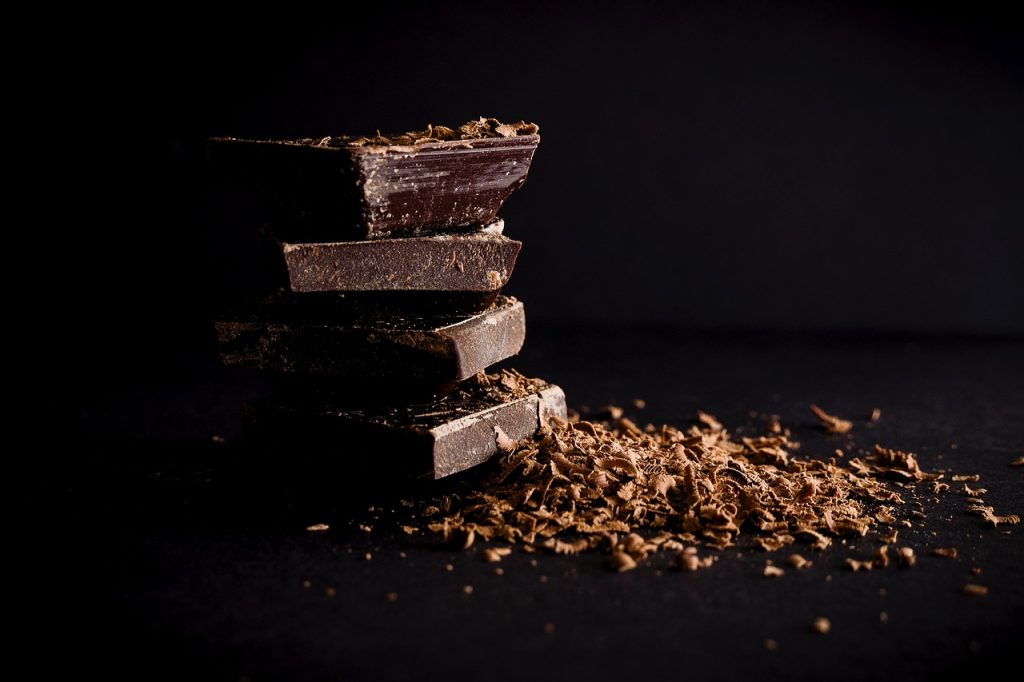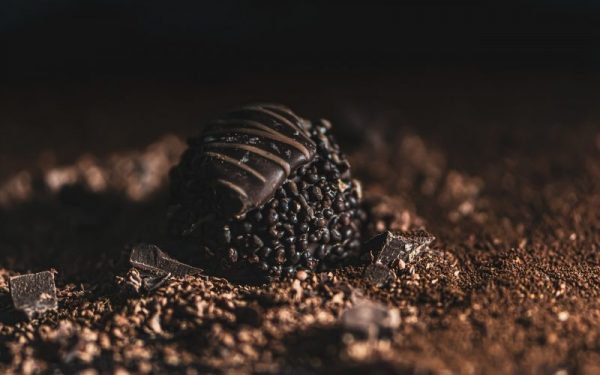25 Dark Chocolate Health Benefits and Risks for your Consideration
Indulging in a guilty pleasure can sometimes have unexpected health benefits, and dark chocolate is a perfect example of this as we explore dark chocolate health benefits and risks. In addition to its irresistible taste, dark chocolate is widely celebrated for its potential health advantages. It is a treat that not only satisfies the sweet tooth but also contributes positively to overall well-being.
In a world inundated with health advice and wellness trends. My evidence about the virtues of dark chocolate is grounded in my scientific research and nutritional understanding.
The dark chocolate health benefits and risks I’ve listed are supported by scientific studies, not just anecdotal tales.
It is important to consult with a healthcare professional as the dark chocolate health benefits and risks may vary from person to person, particularly if you have specific health concerns.
Fast facts on chocolate
- Ancient Origins: Chocolate has a rich history dating back to ancient civilisations. The Olmec civilisation in Mesoamerica is credited with being the first to cultivate cacao plants around 1500 BCE.
- Health Benefits: Dark chocolate, in moderation, has been associated with several health benefits. It contains antioxidants, such as flavonoids, which may contribute to heart health by improving blood flow and reducing blood pressure.
- Theobroma Cacao: The scientific name for the cacao tree, Theobroma cacao, translates to “food of the gods.” The genus name “Theobroma” is derived from Greek, where “theo” means god, and “broma” means food.
- World’s Largest Producers: Ivory Coast and Ghana are the two largest producers of cocoa globally, collectively supplying more than half of the world’s cocoa.
- Chocolate’s Melting Point: Chocolate has a melting point just below human body temperature, which is why it melts so easily in your mouth.
Benefits

Help Fight Tooth Decay
The main source of dark chocolate cacao has been proven to have antibacterial agents that help fight tooth decay. This is in contrast of course to the traditional myth. New research has even revealed that cocoa extract is more effective than fluoride in fighting cavities.
Elevator of Moods
Dark chocolate is believed to be an elevator of moods as it contains phenylethylamine which is commonly referred to as the love drug. [2]
Helps People to Relax
Dark chocolate has a smell that helps people to relax and be freed from stress specifically because it increases theta brain waves. Theta is the state of mind where it is believed you can create everything and change reality instantly. [3]
Raises Good Cholesterol
Dark chocolate contains a kind of monounsaturated fat, called oleic acid, which raises good cholesterol. Oleic acid reduces blood pressure while increasing good HDL cholesterol.
Flavonoids
Dark chocolate contains flavonoids, a natural antioxidant that protects cells against damage from free radicals that cause oxidative stress associated with heart disease and cancer. [4]
Increase Antioxidants
Oxygen Radical Absorbance Capacity, [ORAC] is a measure of the antioxidant activity of foods. Dark chocolate is a rich source of antioxidants, such as polyphenols, flavanols, and catechins, due to its high ORAC score. [5]
Helps Increase Serotonin Levels
Chocolate contains serotonin and precursors to serotonin. Eating chocolate may increase serotonin levels, which can improve mood. Chocolate with 85% cocoa has the highest serotonin content.
Lower the Risk of Heart Attack and Stroke
Recent research indicates that individuals who are middle-aged or older and consume up to 3.5 ounces of dark chocolate every day, display lower rates of heart disease than those who do not consume dark chocolate. The study’s results were published in the “Heart” magazine of the British Medical Journal and were derived from data collected during the EPIC-Norfolk study.
Reduces Risk of Diabetes
Dark chocolate has the highest cocoa content and a very high level of antioxidants which can prevent some forms of cell damage. Research has shown that dark chocolate consumption has resulted in reduced insulin resistance and improved liver enzyme levels. This may reduce a person’s risk of developing diabetes but this has to be considered with diet and other lifestyle factors.
Free Anti-Depressant
The serotonin level in dark chocolate may act as an effective anti-depressant. It contains serotonin, which has nearly identical qualities to anti-depressants.
Effective Anti-Aging
Esthechoc was created by a spin-off lab from Cambridge University. It claims to increase circulation and boost antioxidants, which can help prevent fine lines and wrinkles, leaving the skin looking youthful and smooth.
Natural Sunscreen
It has been suggested by the British Association of Dermatologists that consuming certain foods, such as dark chocolate, may offer some limited protection against harmful UV rays of the sun. In a study, it was found that adults who consumed half a small bar of dark chocolate daily for 12 weeks could endure twice as much exposure to the sun before experiencing sunburn as compared to those who didn’t consume any. However, it is important to note that the level of protection offered by chocolate is very minimal.
Lowers the Risk of Alzheimer
According to a study published in the journal Neurology, drinking two cups of hot chocolate every day can prove beneficial for ageing individuals as it improves the blood flow to their brains, helping them keep their minds sharp and their brains healthy. This is because different areas of the brain require more energy to perform their tasks, which leads to greater blood flow. The relationship between the two, referred to as neurovascular coupling, could potentially play a crucial role in conditions such as Alzheimer’s. The study was conducted with 60 individuals aged 73, who did not have dementia. Dr Simon Ridley, the head of research at Alzheimer’s Research UK, believes that this research adds to the existing evidence linking vascular problems and poor cognition. He also mentioned that a cocoa-based treatment could be popular, but it’s too early to draw any conclusions about its effects.
Release of Nitric Oxide
The flavanols in dark chocolate can stimulate the endothelium, the lining of arteries, to produce Nitric Oxide, a substance that helps relax blood vessels. This lowers the resistance to blood flow and therefore reduces blood pressure.
Improved Vision
Scientists at the University of Reading in England tested the vision of 30 men and women before and a few hours after eating chocolate. Half of the participants received white chocolate and the other half received dark chocolate. Those who received dark chocolate performed better on vision tests—better than before the tests and better than the other participants who received white chocolate.
Cocoa does contain some saturated fat. But most of it is stearic acid — which studies have suggested doesn’t elevate blood cholesterol levels as much as other saturated fatty acids. However, chocolate products can have other types of fat added, like “milk fat” or “partially hydrogenated vegetable oil” or even coconut or palm oil (both naturally saturated oils), in addition to “cocoa butter.”
A Reasonable Amount of Magnesium
Magnesium is a vital mineral that supports muscle and nerve function, the immune system, heart rhythm, and bone health. Dark chocolate is a high-magnesium food.
A Reasonable Amount of Iron
We need iron in our diet for our bodies to make healthy red blood cells, and to sustain our energy levels. And dark chocolate is a surprising source of iron
A Reasonable Amount of Zinc
Zinc is an essential mineral needed by the body for maintaining a sense of smell, immune system health, protein building, enzyme triggering, and DNA creation. Foods high in zinc include dark chocolate.
Risks and Precautions

Chocolate is High in Calories
It is also essential to remember that despite its apparent health benefits, dark chocolate is a high-calorie and fat food, and therefore is likely to contribute to weight gain if eaten in excess. The normal recommendation is a moderate intake of dark chocolate of around one ounce a few times per week
Chocolate Contains Caffeine
Dark chocolate does contain small amounts of caffeine but not nearly as much as coffee, however, some doctors will recommend that people who are not in good health not eat foods that contain caffeine.
Characteristic Bitter Taste
Pure cocoa, the bean that chocolate is made from, is strikingly bitter. If you choose dark chocolate (ideally, 70% cocoa or more) for the health benefits mentioned previously. The darker, the better. However, you will need to accept that bitter taste.
Contains some Saturated Fat
Cocoa does contain some saturated fat. But most of it is stearic acid — which studies have suggested doesn’t elevate blood cholesterol levels as much as other saturated fatty acids. However, chocolate products can have other types of fat added, like “milk fat” or “partially hydrogenated vegetable oil” or even coconut or palm oil (both naturally saturated oils), in addition to “cocoa butter.”
What to do next?
Indulge in guilt-free dark chocolate, scientifically proven to promote well-being. Check out our selection of dark chocolate gifts.

